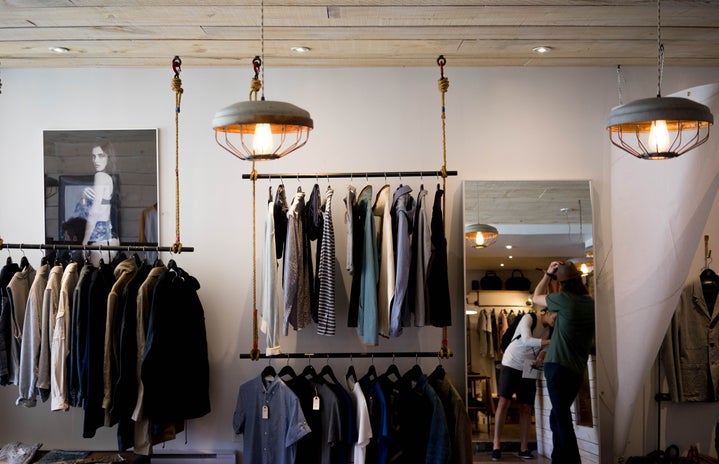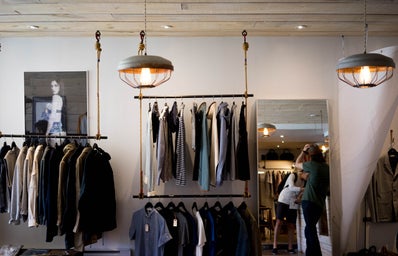You’ve likely heard the term “glass ceiling” but there isn’t much of a dialogue around the concept of the “glass escalator”. The glass escalator is representative of how easily and quickly men advance in female-dominated career fields.
Where the glass ceiling keeps women out of power in fields that they’re a minority in, the glass escalator keeps them out of power in a field they’re the majority in. When we talk about things like cooking and teaching, we often automatically associate those things with women but chefs and professors are actually often men. These can be indicative of how men are often given positions of power more quickly in female-dominated fields. This is especially an issue in the fashion industry.
According to an article written by FashionUnited in 2019, nearly 80% of students at leading fashion institutes are women and women make up 75% of the workforce at apparel stores but only 12.5% of women are in executive positions at major brand companies. This raises the obvious question: why is an industry funded by women and targeted at women with a mostly female workforce run by men?
There are a variety of reasons women struggle to make it past entry-level jobs in the fashion industry. It is partially as a result of some women lacking the confidence in themselves to go for these positions because they see that most of them are filled by men. Another reason is because women are constantly pressured to choose between their personal life and their career in a way that men aren’t.
Women who are married and/or have children are looked at as less available and reliable and this is, unfortunately, understandable because women are expected to take on the brunt of the responsibility of caring for their family, an expectation not placed on men who are married and/or have children. Society still views women primarily as homemakers, so there’s always a level of bias playing into whether or not women are even considered for executive positions because they have the potential to become a wife or mother, even if they aren’t one now.
Arguably the biggest cause of the glass escalator in fashion is the lack of acknowledgement that there even is a glass escalator. There are many sexist ideals that play into men being given higher positions of power (they’re less emotional, more creative, more hardworking, more driven) and these ideals play out heavily in the fashion industry.
There are likely many women just as, if not more, skilled than their male counterparts but they are less likely to get the praise they deserve because of the biases towards the minority male group.
The sexism in how men are perceived, however, goes unacknowledged because the leaders in the industry don’t even notice it. In a 2015 survey conducted by Business of Fashion, they spoke to 50 major brands around the world and found that while 100% of women interviewed said there was an inequality problem, only around 45% of the men did.
You can’t work through a problem if you don’t even acknowledge that it exists and if you’re only speaking to the perpetrators of the problem! Female designers and executives are starting to get a little more recognition but it’s not nearly enough.
It’s important for us to promote and support female fashion designers when we see them. We want more women in the rooms where they’re making decisions about an industry built by us and towards us and in order to do that, the glass escalator needs to be shut down.


